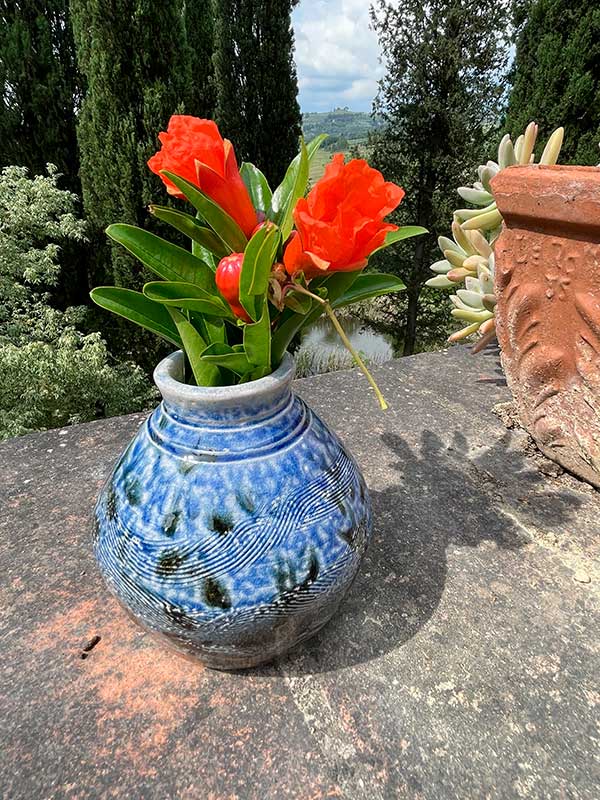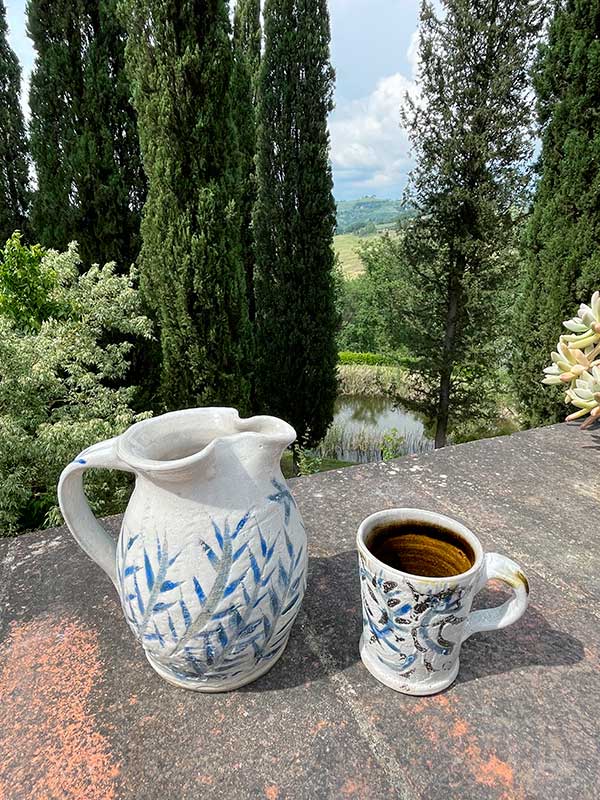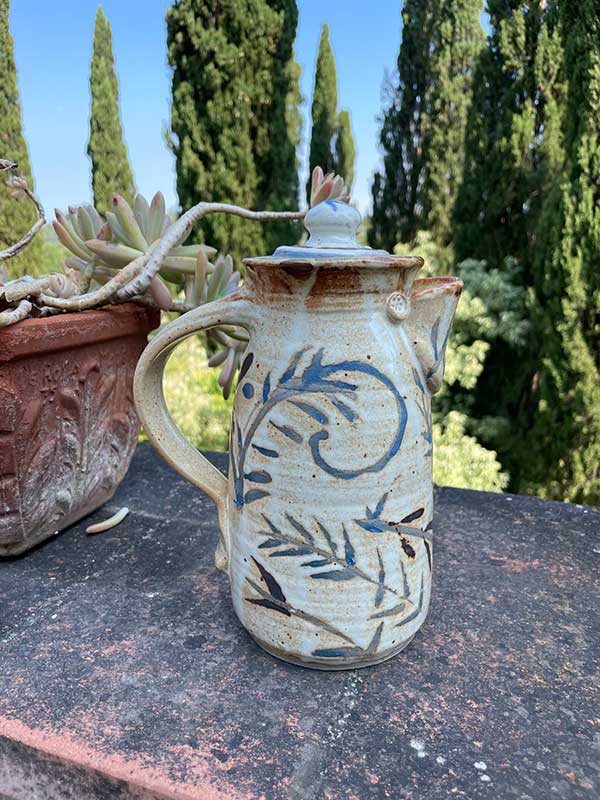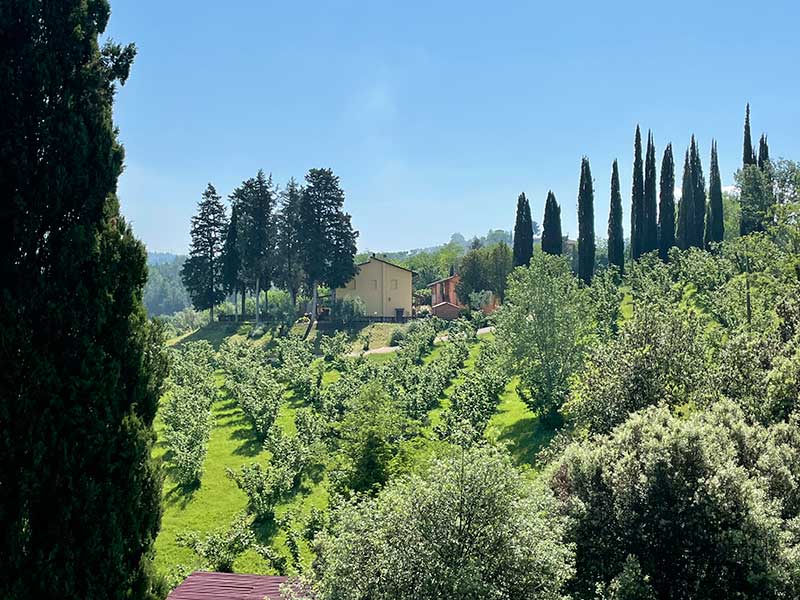
I’ve just returned from a two week immersive pottery course in the Tuscan hills of Italy. I’m still overwhelmed by the beauty of the natural surroundings– waking up every morning to the mist dangling over the olive groves and then the sun quickly burning it off, leaving only breathtaking vistas of rolling groves in so many shades of green, and majestic cyprus trees whose height and grace suggested a knowledge I wanted to discover. We even loved when thunder and lightning rolled like a tempest across the hills. A constant reminder of the power of nature.
My time was spent in the pottery studio of La Scuola Internazionale di Ceramica: La Meridiana where I was learning about surface decoration and soda firing alongside 13 other international intrepid potters. Our teacher, Michael Kline, from North Carolina, had a lot to share and teach us during the two week course. The opportunity to be in such a welcoming and physically beautiful space, have meals provided for (a three course lunch with wine!) and lodging only steps away meant that our focus was completely on the work. I think this is the meaning of retreat.
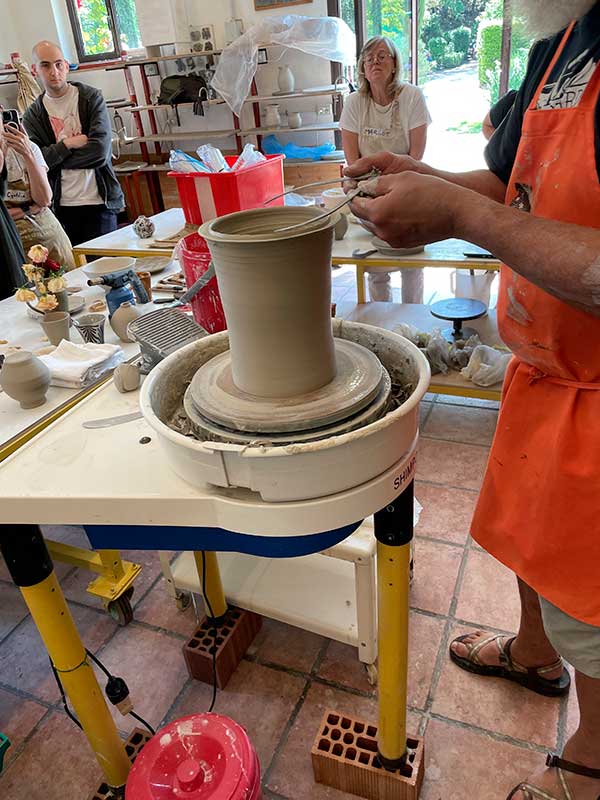

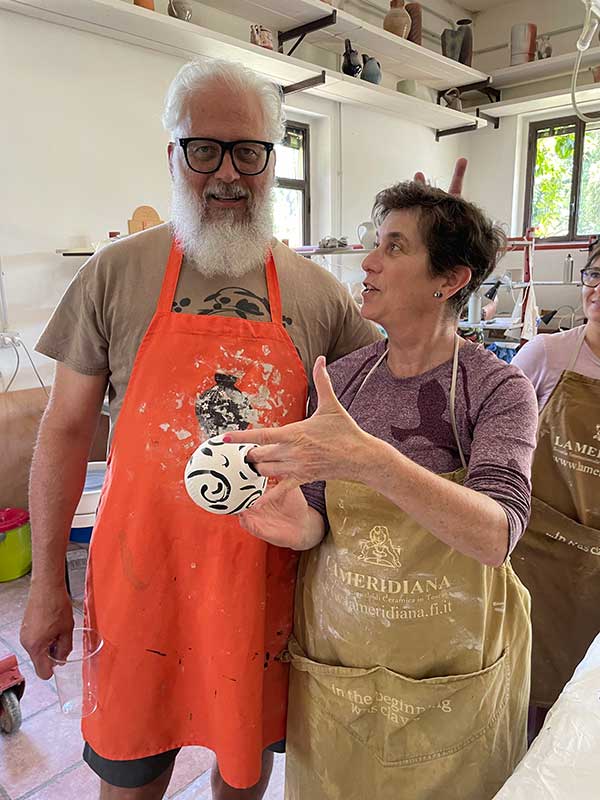
I learned A TON: new techniques, new skills, gained new ideas. But, as a lifelong educator, my mind naturally focused on how I could possibly translate this experience and share some thoughts.
I settled on the interplay of passion, practice, time and expert knowledge. How do we provide opportunities in our classrooms for young people to discover their passions and practice and practice without fear of being “wrong”? How do we help them continue to iterate and discover possibilities? And importantly, how do we celebrate success? I know I wouldn’t have felt so motivated to keep working if I hadn’t been provided with opportunities to be successful.
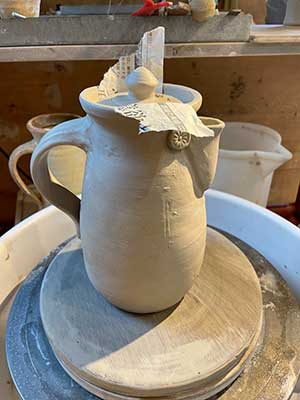
We had varying degrees of experience: some of us had been throwing for a longer time than others, but here we were, in a space where the only thing that mattered was everyone getting better and each of us conquering our clay demons. One of us hated making handles; another wanted to throw more thinly and a third wanted to master the art of the coffee pot. We practiced making what was hard, with ample support and opportunities to try again; we learned to critique one another and celebrate small victories; and, we had uninterrupted time. Time was our friend: long days and excellent conditions in which to work with lots of materials. And, our teacher shared his expertise: again and again.
Learning by doing; coaching for improvement; celebrating small and large victories. Most critically, I think: passion and love for the work. These were some of the ingredients for successful learning.
In our schools, as currently configured, passion, practice, time and expert knowledge and coaching seem to be in short supply. If we think these are some of the important components for successful learning, what will it take to create more possibilities for young people to truly find their passions? When I was co-directing Fenway High School, we introduced Project Week as an opportunity for young people to explore different interests. Our thinking was simple: passion can grow from exposure to diverse experiences and ideas. And, we made sure that students only thought about their one on-going five day project. We wanted them to make and learn without interruption.
I’d love to hear your ideas about how to bring more opportunities into school for uninterrupted time to create passionate students with expertise.
